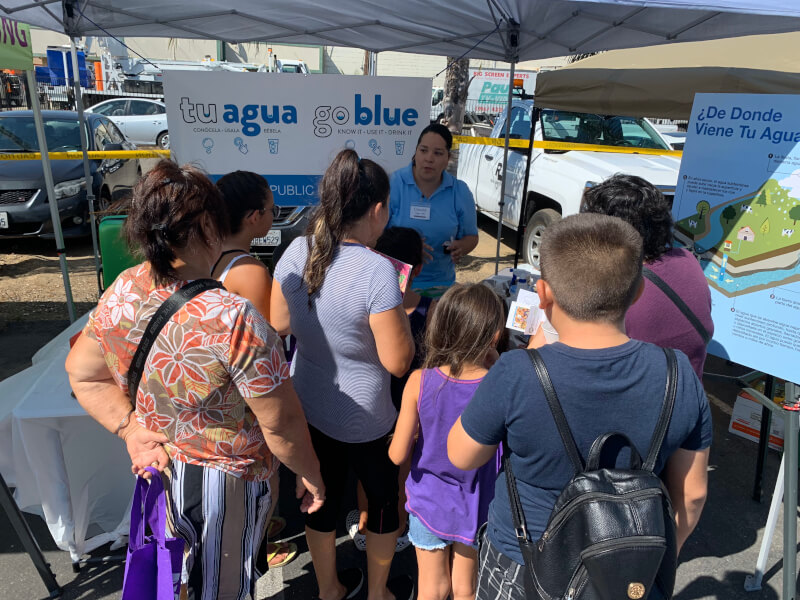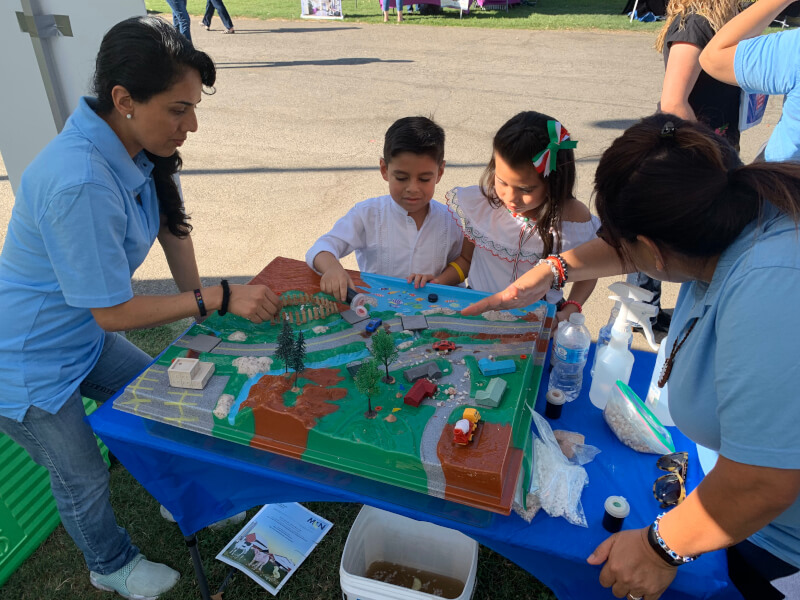
Tu Agua – Spanish-Language Community Engagement
Background
Non-English-speaking communities are traditionally less aware of and engaged in local and regional water issues. Person-on-the-street and community leader interviews identified three basic areas that water agencies serving linguistically diverse communities needed to address before the community would become more engaged and interested in water issues:
- Most non-English-speaking respondents could not identify their water provider by name. This was especially true in areas were renters had their utilities cost included in their rent and therefore received no direct communication from their water agency.
- Overwhelmingly, respondents did not trust the quality of their water. Oftentimes the mistrust emanated from misinformation regarding the provenance of the water, other times it cultural and home-country experiences fostered distrust within immigrant communities, and other cases were due to lack of information and communication with their water providers.
- Due to this distrust, every non-English-speaking respondent reported purchasing bottled water for home consumption, many even for cooking. Some reported spending upwards of $200 a month on bottled water, which results in devastating and disproportionate effects on the economic wellbeing of these disadvantaged communities.
Pilot Program
In response to the findings, a pilot program was developed for the Olivehurst, California, whose growing Latino population currently comprises nearly 40% of the total population. The program aimed to assist the Olivehurst Public Utility District (OPUD) to better engage with and inform their Spanish-speaking community. The goal was to develop strategies and materials that could be adapted and replicated in other diverse communities.
Program Elements
Community Engagement
- Participated in community and cultural events, providing water education and introducing OPUD to Spanish-speaking members of the community. Events included County Fairs, health fairs, Cinco de Mayo events and Hispanic Heritage Month events.
- Worked with English Learner Advisory Committee (ELAC) coordinators at local public schools to attend their ELAC meetings and present to parents of non-English-speaking students information about water quality, water issues and how to better engage with their water provider.
- Participated in live, in-studio interviews on Spanish-language radio to talk about water quality, water issues and how the community can be more involved in water-related decision making. Took and answered questions from the community on air.

Social Media
- Developed a Tu Agua Facebook page, in Spanish, to provide water related information and answer questions from the community. The Facebook page hosted a variety of information and materials, including:
- A series of videos demonstrating various fruit- and herb-infused water recipes, encouraging viewers to use their clean, drinkable tap water in flavorful ways that would address personal distaste of tap water.
- A video tour of OPUD’s water treatment plant, showing the process by which OPUD cleans water and provides high-quality, drinking water.
- A series of posts and images giving tips and ideas as to how to conserve water.
- A series of posts and images showing what individuals can do within their homes and neighborhoods to keep their local water supply clean.
Organizational Support
- Translated numerous materials and forms into Spanish, including connection and disconnection forms, shut off notices and more. Additionally, developed a guide to help non-English-speakers understand Consumer Confidence Reports (CCRs).
- Developed a section of the OPUD website in Spanish, to provide easy access to general information and translated forms.
- In coordination OPUD’s Board of Directors, developed organizational policies to track language needs in the organization and enhance hiring strategies to ensure individuals with needed language skill sets are available at critical community interaction points of service.
- Implemented a Language Line where staff can instantly reach interpreters for any language, including ASL, when interacting with community members who need language assistance. Furthermore, developed standards for testing and qualifying the language skill capabilities of staff who self-report as bilingual.